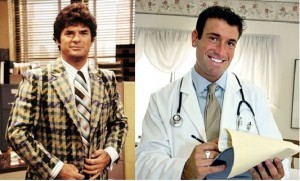We have all probably heard this analogy once in our lives – asking questions and probing for information in the sales call is much like a doctor’s examination. There is a nice correlation between the way in which our medical professionals go through the learning process to understand the cause and the source of the problem that we can all learn from. However, when you really explore the entire process in context, there is a great deal more that we need to understand and can learn from before we can simply act like a physician in the customer interview process.
The following represents other critical thoughts, perspectives, and lessons to internalize before simply probing for information like our favorite local physician”
1. The motivation for medical appointments and sales calls are entirely different: Most of us visit the doctor because we chose to. Most physicians do not make cold calls, referral calls, or set-up appointments to simply build a relationship. When we make an appointment with our doctor it is because we were motivated to do so—we have something going on for which we need an answer or a solution. This also facilitates a more receptive and engaged diagnosis process.
In a sales call, most sales professional set-up or initiate the appointment. The salesperson is the one who was motivated to make the meeting happen. In many cases, our clients are not consciously aware of or interested in solving any particular problem or making a change of some sort. Hence, the clients will be, and often are, more guarded in the interview process. After all, they are not the motivate ones here.
2. We trust our physicians, no one trusts a salesperson: While most everyone trusts their doctors, few trust sales people. In fact, a recent survey revealed that 79% of the clients do not trust their sales people. When we walk into a doctor’s office they have their medical diplomas on display, we know that they have been licensed and certified and we are all aware of the tremendous amount of education and training involved with becoming a doctor. With all this background, generally in combination with a warm referral, we readily trust our doctor.
On the other hand, salespeople have a bad reputation. Their arrogance, their selfishness, their pushiness and their financial motivations make them untrustworthy from the start. The trust and credibility instantly granted to a physician has to be earned and rewarded by the salesperson. This takes time, commitment, and sincerity – something too few sales professionals are willing to focus on consistently.
the balance of these thoughts will be carried over into next week’s blog post. Stay tuned….
Congratulations
Your first AWS Elastic Beanstalk Node.js application is now running on your own dedicated environment in the AWS Cloud
This environment is launched with Elastic Beanstalk Node.js Platform
What’s Next?
- AWS Elastic Beanstalk overview
- AWS Elastic Beanstalk concepts
- Deploy an Express Application to AWS Elastic Beanstalk
- Deploy an Express Application with Amazon ElastiCache to AWS Elastic Beanstalk
- Deploy a Geddy Application with Amazon ElastiCache to AWS Elastic Beanstalk
- Customizing and Configuring a Node.js Container
- Working with Logs


On the first point: it certainly helps if you have an inbound marketing business model where potential customers come to you, instead of you going out to the customer.
On the second point: David Maister’s book, The Trusted Advisor, does a great job of explaining how to sell on the basis of mutual trust. Very important if you’re selling big ticket intangible services.
[…] last week’s post, I talked about two of the distinct professional differences between salespeople and physicians. […]